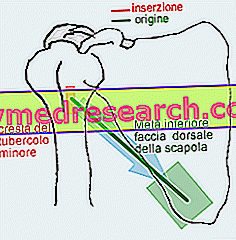Related articles: Ecchymosis
Definition
An ecchymosis is a superficial discharge of blood, which is deposited in the thickness of the skin. Commonly known as a bruise, this haematic extravasation manifests itself as a visible, purplish-red, relatively extensive patch that does not disappear under pressure.
Ecchymoses are typically associated with local pain, swelling, tingling and numbness in the affected area, followed by annoying tension.
As the days pass, the color of the lesion turns from purple to green or yellow, until it disappears completely within 15-20 days, with the reabsorption of blood infiltration. This chromatic variation depends on the modifications of the hemoglobin contained in the erythrocytes (red in color) which, in the absence of pulmonary oxygenation, turns first into methaemoglobin, then into hematin (green-brownish) and subsequently into hemosiderin (greenish-yellowish) and hematoidin (yellow).

The bruises are almost always due to trauma (bruises, fractures or dislocations). However, this symptom can also signal the presence of pathologies that determine an excessive fragility of the vessel wall, such as purpura and scurvy.
The ecchymoses can arise spontaneously or with great ease in the context of morbid conditions that reduce the number of platelets (thrombocytopenia, haemolytic-uremic syndrome, sepsis and HIV infections) or that alter coagulation capacity (hemophilia, leukemia, some myelodysplastic syndromes, diseases hepatic disease, disseminated intravascular coagulation and vitamin K deficiency).
The ecchymoses can be found in the presence of cirrhosis of the liver, acute pancreatitis, purpura (simple or senile), aplastic anemia and various infectious diseases. Other conditions that may predispose to bruising include vasculopathies, connective tissue diseases (Ehlers-Danlos syndrome, imperfect osteogenesis and Marfan syndrome), inflammatory pathologies of small vessels (eg phlebitis) and the intake of anticoagulant drugs (such as warfarin and heparin ).Possible Causes * of Ecchymosis
- Anemia
- Fanconi anemia
- Infectious Cellulite
- Chikungunya
- Liver Cirrhosis
- Disseminated Intravascular Coagulation
- Freezing
- Dengue
- Distortion
- Coagulation disorders
- Ebola
- Haemophilia
- haemosiderosis
- Hepatitis C
- Fulminant hepatitis
- Lassa fever
- Crimean-Congo haemorrhagic fever
- Marburg hemorrhagic fever
- Yellow fever
- Hepatic fibrosis
- Leishmaniasis
- Leptospirosis
- Leukemia
- Systemic lupus erythematosus
- Dislocation
- Gaucher disease
- Von Willebrand disease
- Myelofibrosis
- Multiple myeloma
- Measles
- Cushing's disease
- Imperfect osteogenesis
- Barotraumatic otitis
- Pancreatitis
- Scurvy
- Sepsis
- Septic shock
- Ehlers-Danlos syndrome
- Marfan syndrome
- Hemolytic-uremic syndrome
- Muscle tear
- Essential thrombocythemia
- thrombophlebitis



